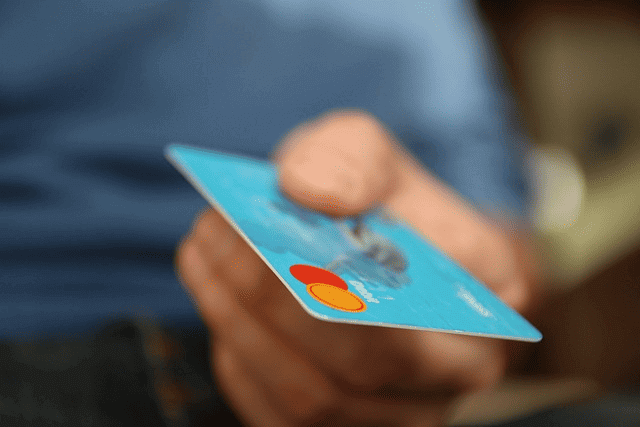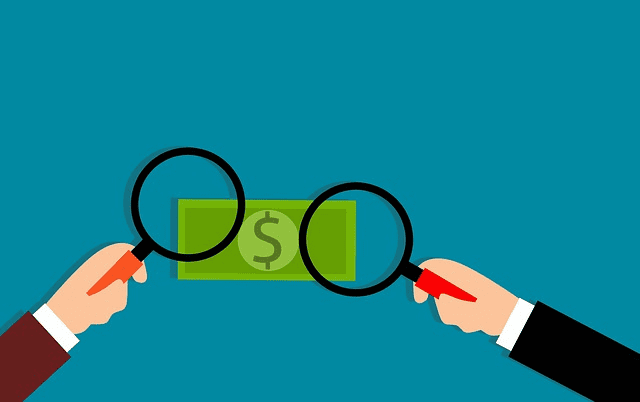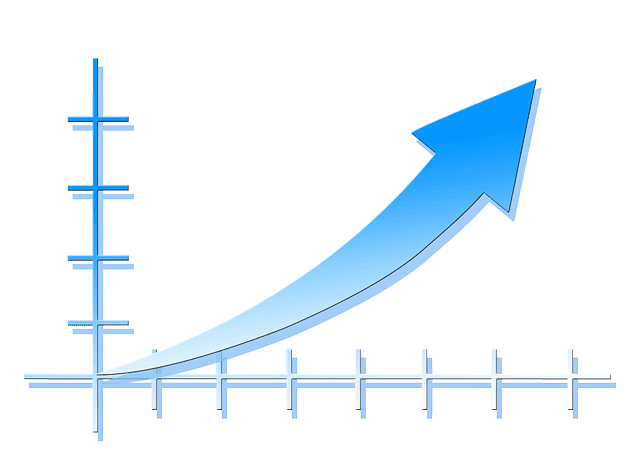
Is bankruptcy truly the end of the world for your credit score? This common belief has instilled fear in many individuals considering bankruptcy as a solution to their financial woes. However, the truth is far less grim. In this blog post, we’ll explore the relationship between bankruptcy and credit scores, debunking myths and misconceptions along the way, and providing you with the tools to navigate this challenging financial journey. You’ll learn that, with dedication and responsible financial management, it is indeed possible to recover your credit score after bankruptcy. So, is it true that filing bankruptcy doesn’t ruin your credit? Let’s find out.
Key Takeaways
- Bankruptcy may temporarily hurt your credit score, but it won’t ruin it permanently.
- Factors such as initial credit score, payment history and debt-to-income ratio influence the effect of bankruptcy on your credit score.
- With dedication and responsible financial management strategies, you can improve your credit even after filing for bankruptcy.

The Impact of Bankruptcy on Credit Scores
Bankruptcy is a legal process that can provide relief from overwhelming debt, but it does come with consequences for your credit score. Filing for bankruptcy can have a negative impact on your credit scores, affecting your relationship with credit card issuers and other lenders.
However, a common myth surrounding bankruptcy is that it ruins your credit score permanently – this is simply not true. The extent of the impact on your credit scores varies depending on factors such as your initial credit score and the type of bankruptcy filed, whether it’s Chapter 7 or Chapter 13.
Factors influencing the effect of bankruptcy on credit scores
Several factors determine the impact of bankruptcy on your credit scores. The impact of bankruptcy heavily depends on your initial credit score. Possessing a higher initial credit score can mitigate the harm bankruptcy does to your credit score.
Payment history is one of the most important factors that are used to determine your FICO Score. It accounts for around 35%. A good payment history can help reduce the negative impact of bankruptcy on your credit scores and improve your credit history.
Moreover, your credit score’s response to bankruptcy is also influenced by your debt-to-income ratio. A high debt-to-income ratio could worsen the negative impact of bankruptcy on your credit scores.
Comparing Chapter 7 and Chapter 13 bankruptcies’ effects on credit scores
Individuals typically file for bankruptcy under either Chapter 7 or Chapter 13 of the federal bankruptcy code. Chapter 7 bankruptcy, also known as liquidation bankruptcy, usually has a more substantial effect on credit scores compared to Chapter 13 bankruptcy. However, both types of bankruptcy can eventually lead to an improvement in your credit score.
No matter what type of bankruptcy you file, it’s important to concentrate on rebuilding your credit subsequent to it. Monitoring your credit reports and scores, cultivating good credit habits, and exploring options like secured credit cards or credit-builder loans can help you enhance your credit score after bankruptcy.
The Timeline of Bankruptcy on Your Credit Report
Bankruptcy remains on your credit report for a specific duration, depending on the type of bankruptcy filed. Understanding this timeline is important, as any late payments and discharged accounts can continue to impact your credit scores as long as they are present on your credit report.
Being aware of when your bankruptcy filing is removed from your credit report can assist you in planning your future credit applications and financial objectives.
Chapter 7 bankruptcy timeline
Chapter 7 bankruptcy, the most common form of bankruptcy, stays on your credit report for up to 10 years from the filing date. During this period, monitoring your credit reports is vital to maintain accuracy and keep abreast of your credit health.
You can access your credit reports from the three major credit bureaus every 12 months for free. AnnualCreditReport.com provides you with these copies.
Chapter 13 bankruptcy timeline
Chapter 13 bankruptcy, also known as a repayment plan bankruptcy, remains on your credit report for up to 7 years from the filing date. Despite having a shorter timeline than Chapter 7, monitoring your credit reports and scores and rebuilding your credit through responsible financial management remains important with this type of bankruptcy.

How Bankruptcy Can Help Improve Your Credit Score
Although filing for bankruptcy can initially damage your credit score, there is a positive side: bankruptcy can eventually aid in enhancing your credit score by eradicating or reducing your debt and giving you a fresh financial start.
Bankruptcy allows for the reduction of your debt-to-income ratio, which can result in improved credit scores. By wiping out or reducing your unsecured debts, bankruptcy allows you to focus on rebuilding your credit and regaining control of your finances. With dedication and responsible financial management, you can work towards improving your credit scores after bankruptcy.
Eliminating or reducing debt
Bankruptcy can either reduce or eliminate your debt, depending on the type of bankruptcy filed and the nature of your debts.
A bankruptcy discharge can be beneficial to your credit score. It eliminates the remaining debt, thus improving the “amounts owed” portion of your score. By decreasing your debt, your debt-to-income ratio is lowered, leading to improved credit scores over time.
Establishing a fresh financial start
Filing bankruptcy provides you with a fresh financial start, allowing you to file bankruptcy and:
- Better manage your personal finances
- Work towards credit score improvement
- Regain access to federal student aid
- Create an organized financial plan
- Develop strong financial knowledge and decision-making skills
By establishing a solid financial foundation, you can work towards achieving financial independence and reaching your financial goals.

Strategies for Rebuilding Credit After Bankruptcy
Rebuilding your credit after bankruptcy takes time, effort, and dedication. To successfully recover your credit score, you need to focus on monitoring your credit reports, developing good credit habits, and considering the use of secured credit cards or credit-builder loans.
Employing these strategies will allow you to progressively elevate your credit scores and reclaim your financial future.
Monitoring your credit reports and scores
Consistently keeping tabs on your credit reports and scores is vital for monitoring your progress and pinpointing areas requiring improvement. Monitoring your credit reports enables you to detect mistakes early, safeguard against identity theft, and remain updated about your financial condition.
Staying proactive in monitoring your credit can help you get back on track faster and achieve your financial goals more efficiently.
Developing good credit habits
Embracing good credit habits is fundamental to enhancing your credit scores post-bankruptcy. This includes paying your bills on time and using credit responsibly. Payment history is a significant factor in your credit score, accounting for approximately 35% of your FICO Score.
By consistently making timely payments and keeping your credit utilization low, you can gradually boost your credit score and demonstrate responsible credit management to future lenders, ultimately increasing your credit limit.
Secured credit cards and credit-builder loans
Secured credit cards and credit-builder loans are excellent tools for rebuilding credit after bankruptcy. A secured credit card requires a security deposit in order to be activated. Additionally, it reports your activity to the credit bureau, which helps to strengthen and improve your credit score..
Credit-builder loans, on the other hand, are personal loans where the lender deposits the funds into a savings account for the borrower. By establishing a positive payment history with these financial tools, you can demonstrate responsible credit management and rebuild your credit over time.
Real World Example of a Client Facing Bankruptcy
When a recent client of ours, we’ll call him Troy, lost his job, he quickly fell behind on credit card and medical debts. Collection calls were incessant. After struggling for months, Troy felt bankruptcy might be his only option. But he worried it would ruin his already damaged credit for many years.
Troy expressed his concerns to his friend James, who had filed Chapter 7 bankruptcy two years prior. To Troy’s surprise, James said his credit had already improved significantly. While bankruptcy did negatively impact his credit at first, his scores started rebounding after about 12 months. Within two years of filing, James had built his credit back up into a respectable range and was able to qualify for new credit.
James explained that your credit won’t be immediately “ruined forever” with bankruptcy. While it hurts initially, responsible use of new secured cards and loans can rebuild credit after a couple years. James suggested Troy meet with one of our bankruptcy attorneys to learn about the process and timeline so he could make an informed decision.
Troy claimed his free consultation with us and ultimately decided to file Chapter 7. While Troy had to rebuild his credit, the bankruptcy gave him a fresh start free from burdensome debts. Through diligent financial planning, Troy was able to buy a new car and qualify for a home mortgage just three years after filing bankruptcy. He wished he had filed sooner.
Alternatives to Bankruptcy for Improving Credit
If you’re hesitant to file for bankruptcy but still want to improve your credit, there are several alternatives to consider. Debt consolidation, debt management plans, and debt settlement are all options that can help improve your credit without the long-term impact of bankruptcy.
Each alternative comes with its own benefits and limitations, hence it’s imperative to thoroughly assess your financial condition and select the most suitable option for your requirements.
Debt consolidation
Debt consolidation involves taking out a single loan to pay off multiple debts, often with a lower interest rate than your existing debts. This can simplify your repayment process and potentially improve your credit by lowering your overall interest payments and making it easier to manage your debt.
However, it’s important to be aware of potential risks, such as taking on more debt than you can afford to repay or securing a loan with a higher interest rate than the debts you are consolidating.
Debt management plans
Debt management plans involve working with a credit counseling agency to create a structured repayment plan, often with reduced interest rates and fees. By making consistent monthly payments, this option can help you manage your debt more effectively and potentially improve your credit score over time.
However, it’s essential to find a reputable credit counseling agency and ensure that the terms of the debt management plan are suitable for your financial situation.
Debt settlement
Debt settlement is the process of negotiating with creditors to accept a lower payment amount as full payment for a debt. While this alternative can damage your credit, it may be less severe than bankruptcy and can still lead to improvements in your credit score over time.
However, debt settlement can be risky and costly, with fees charged by debt settlement companies both at the start and throughout the process.
Real-Life Examples of Credit Recovery After Bankruptcy
Credit recovery after bankruptcy is not a myth – it’s a reality for many individuals who have successfully rebuilt their credit scores after navigating this challenging financial journey. For example, John, a small business owner, filed for Chapter 7 bankruptcy after his business struggled during an economic downturn. By focusing on rebuilding his credit and adopting good financial habits, John was able to improve his credit score within two years, eventually qualifying for a mortgage and starting a new business.
Similarly, Sarah, a single mother who filed for Chapter 13 bankruptcy due to mounting medical bills, worked diligently to rebuild her credit after her bankruptcy discharge. By following these steps, Sarah was able to significantly improve her credit score within just a few years:
- Monitor her credit reports regularly.
- Develop good credit habits, such as paying bills on time and keeping credit card balances low.
- Use a secured credit card to establish a positive payment history.
- Seek guidance from a credit counselor or financial advisor for personalized advice.
These real-life examples illustrate that with dedication and responsible financial management, it is indeed possible to recover your credit score after bankruptcy.
Summary
While bankruptcy can initially cause a significant drop in your credit scores, it’s essential to remember that the road to credit recovery is not only possible but achievable with dedication and responsible financial management. By understanding the nuances of bankruptcy, its impact on your credit scores, and the strategies for rebuilding credit afterward, you can regain control of your financial future and work towards achieving your financial goals.
Embrace the opportunity for a fresh financial start and take the necessary steps to rebuild your credit after bankruptcy. With perseverance, commitment, and a focus on responsible financial management, you can rise above the challenges of bankruptcy and create a brighter financial future for yourself and your family.
Frequently Asked Questions
Can you file bankruptcy without ruining your credit?
Filing bankruptcy may not significantly worsen your credit any further if it has already suffered, and many individuals can often see an increase in their credit scores within a year. However, it will still have a negative impact on your credit score, so it is important to get debt relief now.
Is there a downside to bankruptcy?
Bankruptcy comes with its downsides, like potentially losing assets and damaging credit, as well as difficulties obtaining loans in the future. However, it also offers upsides, such as protecting your property and ceasing calls from collections, giving you a chance to get your finances back on track.
Can credit card debt be eliminated in bankruptcy?
Yes, credit card debt can be eliminated in bankruptcy. Chapter 7 can eliminate credit card debt and a Chapter 13 can reduce or eliminate credit card debt.
What debt Cannot be forgiven in bankruptcy?
Filing for bankruptcy won’t help with certain debts, such as child support, spousal support obligations, student loans, judgments from drunk driving accidents, and most unpaid taxes. Additionally, debts resulting from fraud as well as willful and malicious injury can’t be forgiven either.
Is it possible to improve my credit score after filing for bankruptcy?
Yes, it is possible to improve your credit score after filing for bankruptcy with dedication and responsible financial management.





